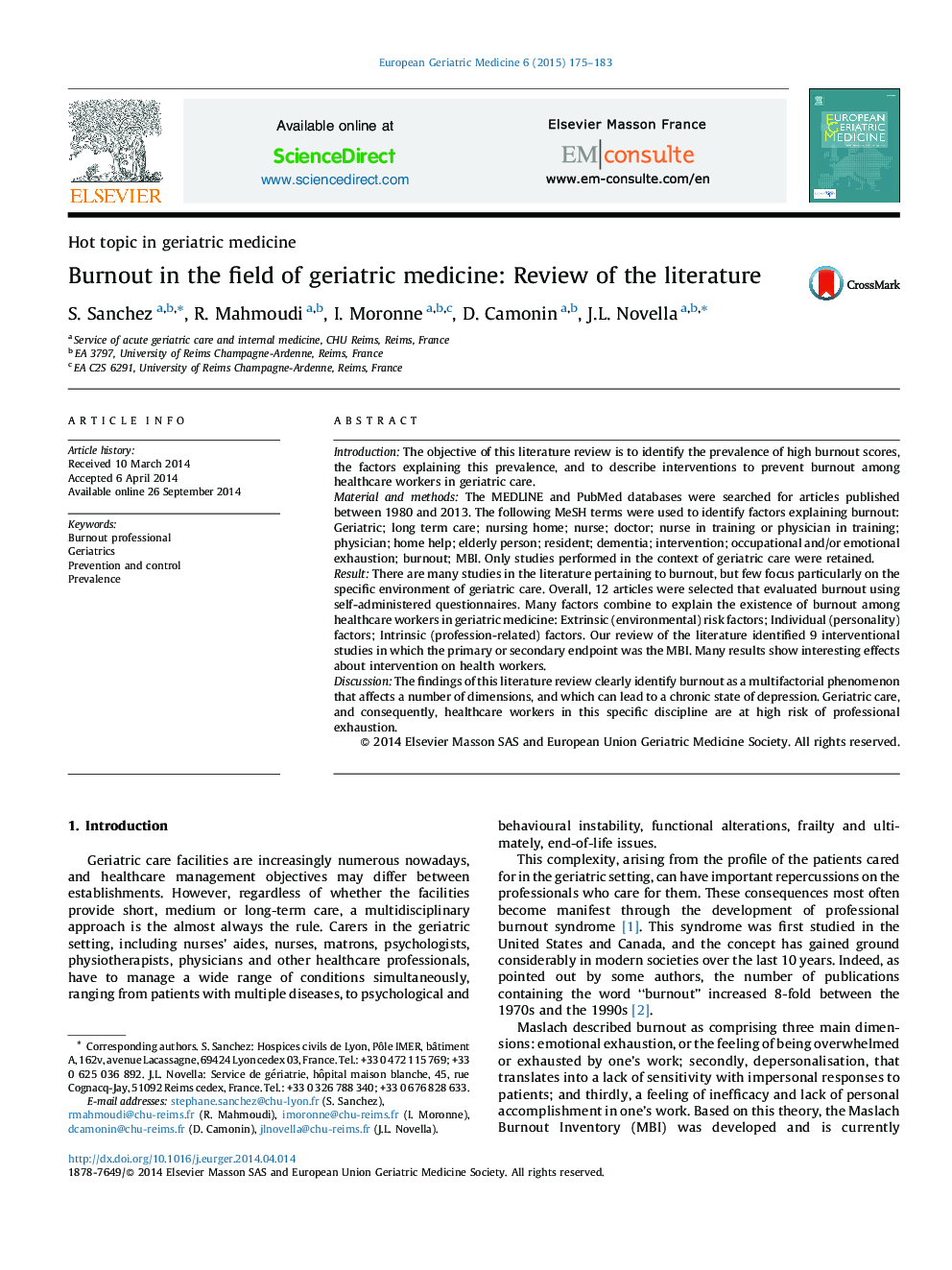| Article ID | Journal | Published Year | Pages | File Type |
|---|---|---|---|---|
| 3324216 | European Geriatric Medicine | 2015 | 9 Pages |
IntroductionThe objective of this literature review is to identify the prevalence of high burnout scores, the factors explaining this prevalence, and to describe interventions to prevent burnout among healthcare workers in geriatric care.Material and methodsThe MEDLINE and PubMed databases were searched for articles published between 1980 and 2013. The following MeSH terms were used to identify factors explaining burnout: Geriatric; long term care; nursing home; nurse; doctor; nurse in training or physician in training; physician; home help; elderly person; resident; dementia; intervention; occupational and/or emotional exhaustion; burnout; MBI. Only studies performed in the context of geriatric care were retained.ResultThere are many studies in the literature pertaining to burnout, but few focus particularly on the specific environment of geriatric care. Overall, 12 articles were selected that evaluated burnout using self-administered questionnaires. Many factors combine to explain the existence of burnout among healthcare workers in geriatric medicine: Extrinsic (environmental) risk factors; Individual (personality) factors; Intrinsic (profession-related) factors. Our review of the literature identified 9 interventional studies in which the primary or secondary endpoint was the MBI. Many results show interesting effects about intervention on health workers.DiscussionThe findings of this literature review clearly identify burnout as a multifactorial phenomenon that affects a number of dimensions, and which can lead to a chronic state of depression. Geriatric care, and consequently, healthcare workers in this specific discipline are at high risk of professional exhaustion.
